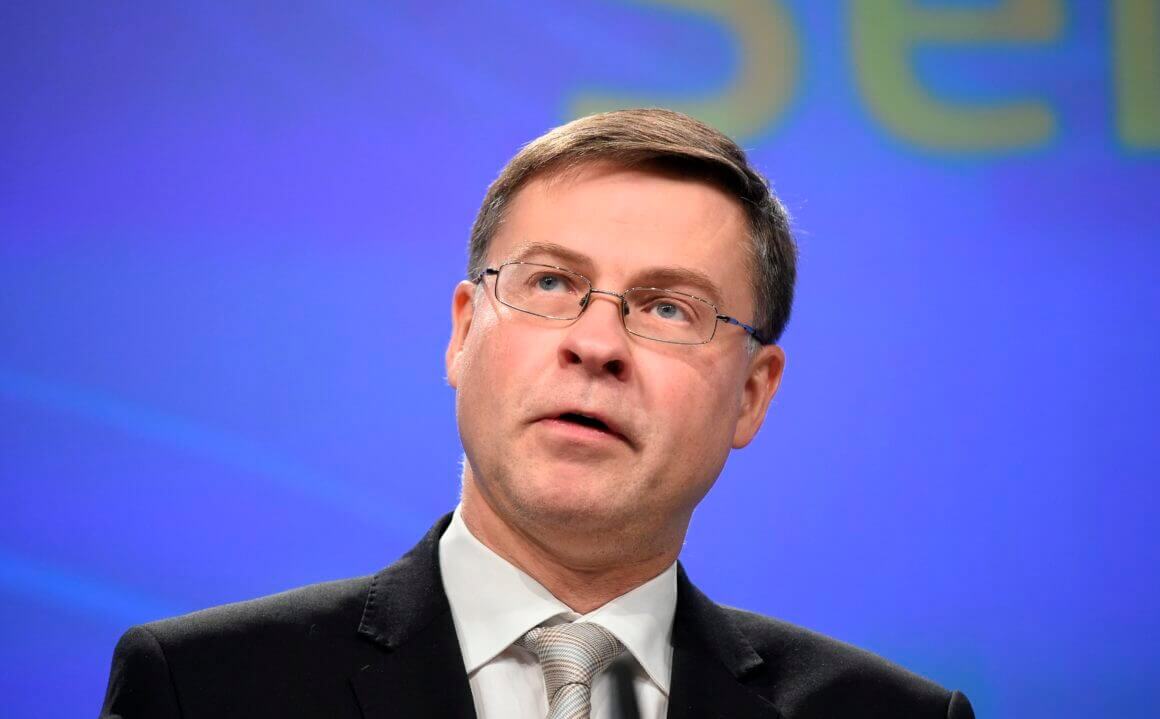The European Union has reportedly suspended the finalisation of an investment deal with China amid repeatedly retaliatory sanctions from both sides.
On Tuesday, EU Executive Vice President Valdis Dombrovskis said, “We now in a sense have suspended… political outreach activities from the European Commission side.” He went on to say, “It’s clear in the current situation with the EU sanctions in place against China and Chinese counter-sanctions in place, including against members of European Parliament (that) the environment is not conducive for ratification of the agreement.” Dombrovskis conceded that it is possible that negotiations may be resumed but that this “depend[s] really on how broader EU-China relations will evolve.”
In December, the EU settled on an investment deal called the Comprehensive Agreement on Investments (CAI) that would have given EU firms greater access to the Chinese market, improve competition conditions, and remove barriers to joint-venture requirements and caps on foreign ownership, and protect foreign investments in China for certain EU industries, such as new energy vehicles, cloud computing services, financial services and health. It was also expected to open up China’s manufacturing sector to EU companies, as well as its construction, advertising, air transport and telecoms industries.
However, the deal still required ratification, which was scheduled for later this year. Moreover, ties between the EU and China have been deteriorating. In March, the bloc sanctioned four Chinese officials whom it sees as orchestrators of “large-scale surveillance, detention and indoctrination programme targeting Uyghurs and people from other Muslim ethnic minorities” in Xinjiang.
The EU has also blamed China for “endangering peace and stability” in the South China Sea (SCS) and refocused its Indo-Pacific strategy to counter China’s rising power in the region. Beijing’s relationship with the EU has also been frayed by its imposition of the national security law on Hong Kong.
In fact, European Commission President Ursula von der Leyen and foreign policy chief Josep Borrell have said, “The reality is that the EU and China have fundamental divergences, be it about their economic systems and managing globalisation, democracy, and human rights, or on how to deal with third countries. These differences are set to remain for the foreseeable future and must not be brushed under the carpet.”
China has retaliated to the EU’s sanctions by imposing its own sanctions against European politicians, scholars and research groups.
Dombrovskis’ comments on Tuesday, therefore, come as little surprise. Last Wednesday, at a European Parliament meeting, lawmakers remarked that the CAI was “on ice”. French MEP Emmanuel Maurel said, “If we want to show once and for all that the EU is not just a supermarket but rather has principles … we have to come up with some tangible action, and that means we need to reject the investment agreement.”
Likewise, Belgian MEP Maria Arena said, “If pro-democracy rights in Hong Kong or Taiwan cannot be discussed in this parliament then nothing can be discussed in this parliament.” Another French MEP, Raphael Glucksman, who was in fact sanctioned by China, said, “Are we going to be free or to be nothing? To be a sovereign house, or to be a parliament that is a doormat, that a tyrant would clean his boots on, with pockets full of money.”
EU Suspends Investment Deal With China Over Tit-For-Tat Sanctions
The deal, which was agreed to in December, still required ratification, which was scheduled for later this year. However, ties between the European Union and China have been rapidly deteriorating.
May 5, 2021

IMAGE SOURCE: JOHN THYS / AFP VIA GETTY IMAGESEU Executive Vice President Valdis Dombrovskis
